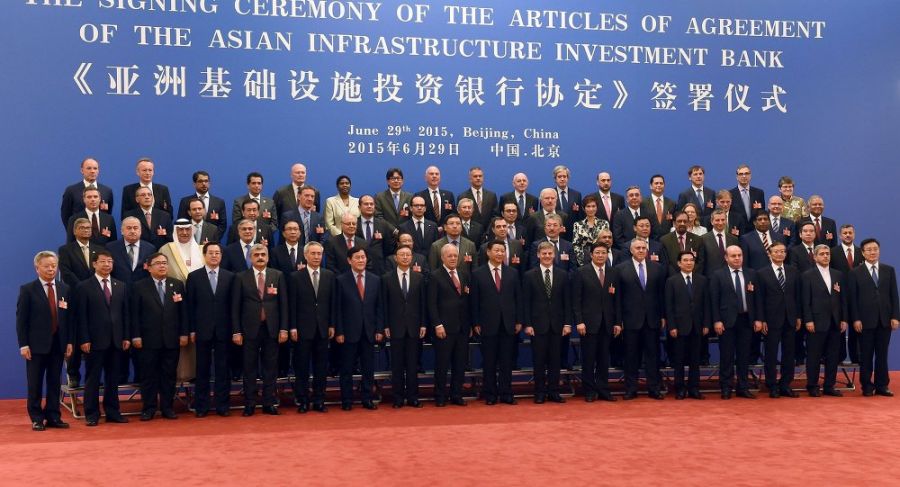

Two major development banks agreed on Wednesday to collaborate on Belt and Road projects of common interest and help eligible countries with financial assistance.
Beijing-based Asia Infrastructure Investment Bank (AIIB) and Almaty-based Eurasian Development Bank (EDB) plan to cooperate via infrastructure projects in transport, sustainable development, urban and energy sectors, in addition to consulting services, analysis, and research.
The agreement will help the banks "boost economic growth and prosperity in the region" and "enhance its internal and external connectivity in terms of trade, investment and business links" in addition to strengthening knowledge-sharing on multiple fronts such as temporary assignments and staff exchanges, an AIIB press statement read.
© REUTERS / DAMIR SAGOLJ
China's Silk Road to 'Fill the Gap of Former World Order' - Scholar
"We are joining hands with EDB to address the significant infrastructure financing needs in the Eurasian region," AIIB Vice President Joachim von Amsberg said. "[The] AIIB believes strongly in the power of partnership with other multilateral development banks because it promotes the exchange of knowledge, experience and resources with its peers."
"This agreement is an important step toward mutual efforts in delivering sustainable infrastructure in common countries of operations," EDB state secretary and deputy chairman of the managing board Andrey Krainiy stated, adding that the EDB strongly welcomes "cooperation between our banks in addressing infrastructure needs of the region".
AIIB president Jin Liqun has signed numerous co-financing agreements in the past between major multilateral banking institutions, including the World Bank, IMF, and many others, to participating countries meet ambitious UN Sustainable Development Goals (SDGs) as well as "generate interest among private sector investors in Public-Private Partnerships" and others.